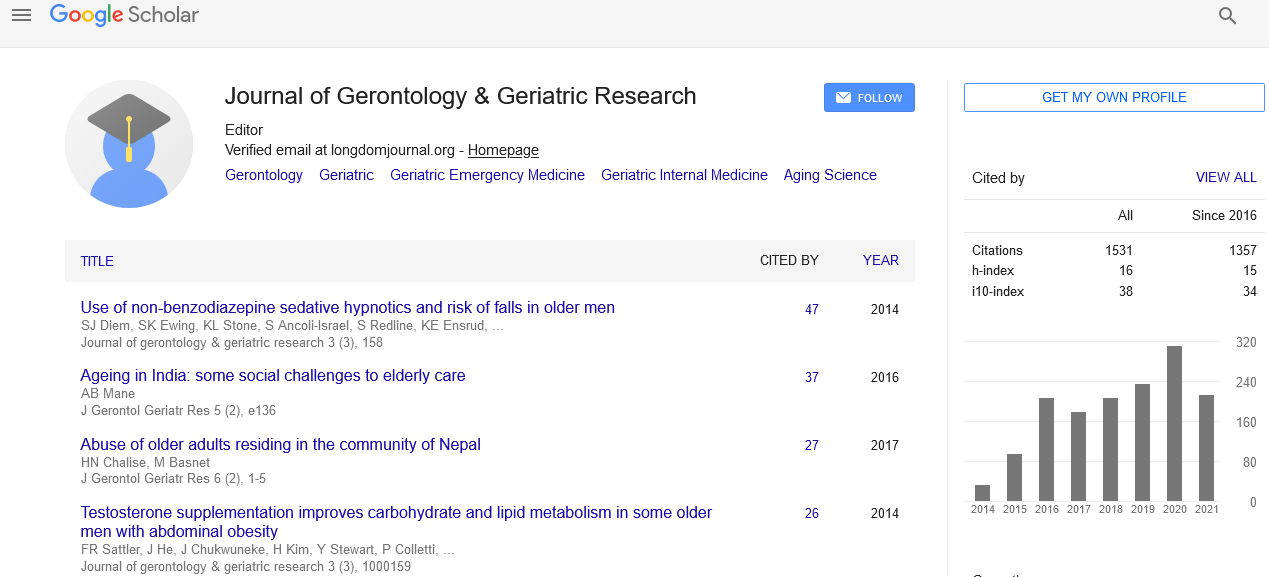PMC/PubMed Indexed Articles
Indexed In
- Open J Gate
- Genamics JournalSeek
- SafetyLit
- RefSeek
- Hamdard University
- EBSCO A-Z
- OCLC- WorldCat
- Publons
- Geneva Foundation for Medical Education and Research
- Euro Pub
- Google Scholar
Useful Links
Share This Page
Journal Flyer

Open Access Journals
- Agri and Aquaculture
- Biochemistry
- Bioinformatics & Systems Biology
- Business & Management
- Chemistry
- Clinical Sciences
- Engineering
- Food & Nutrition
- General Science
- Genetics & Molecular Biology
- Immunology & Microbiology
- Medical Sciences
- Neuroscience & Psychology
- Nursing & Health Care
- Pharmaceutical Sciences
Abstract
Diet Quality and Associated Factors Among Eldercare Workers in Long-Term Care Facilities
Masao Kanauchi and Kimiko Kanauchi
Background: Eldercare workers have a higher prevalence of poor health status, especially in terms of dietary behavior, than general workers. Therefore, the objective of this study was to investigate diet quality and related factors among eldercare workers in long-term care facilities.
Methods: We conducted a cross-sectional study on 466 employees in seven long-term care facilities. All participants completed a brief food frequency questionnaire. Diet quality was assessed using three indexes: the American heart association healthy diet score (AHA-HDS), the world health organization healthy diet index (WHOHDI), and the Mediterranean diet score (MDS).
Results: Eldercare workers had significantly lower AHA-HDS and MDS than general workers. Although no differences were seen between the two groups in WHO-HDI scores, a significant positive association was found between all three indexes and combined healthy lifestyle scores (sum of four items: no overweight/obesity, no smoking, adequate alcohol intake, and regular exercise).
Conclusions: This is the first study to report that AHA-HDS and MDS are low in eldercare workers compared with general workers. Assessing dietary quality and improving adherence to healthier dietary patterns in eldercare workers could therefore be expected to aid health promotion.


